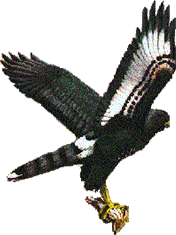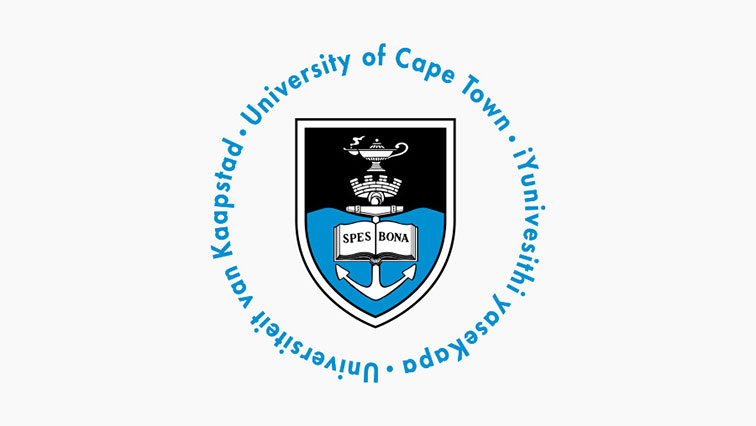
Dr Chima Nwaogu
PhD (Groningen & St Andrews)
John Day Building: 2.17
Biography and research
Chima is a Carnegie Developing Emerging Academic Leaders (DEAL) Research Fellow at the Fitzpatrick Institute working with Prof. Claire Spottiswoode, Dr Susan Cunningham, Dr Gabriel Jamie and other academics at the Fitzpatrick Institute. Chima’s research focusses on avian annual cycle phenology and life-history evolution in the tropics. He is establishing a new programme of work investigating the timing of breeding in Afrotropical birds and how it may be affected by environmental change.
Chima studied for an undergraduate degree in Zoology and a Master’s degree in Conservation Biology at the University of Jos (Nigeria) before taking up a jointly funded and supervised PhD position at the Universities of Groningen (Netherlands) and the University of St. Andrews (UK) where he studied how variation in environmental condition and diet affect innate immune function and other life history traits in birds.
Chima got involved with birds while visiting the A.P. Leventis Ornithological Research Institute (APLORI) as an undergraduate student in Nigeria. He has been involved with ornithology and conservation of African birds and is a research associate at the APLORI, where amongst other tasks he helps with monitoring of a Rosy Bee-eater breeding colony on the river Niger, Nigeria. He was a DST-NRF Centre of Excellence Postdoctoral Research Fellow at the Fitzpatrick Institute of African Ornithology where he studied how urbanisation, weather patterns and plumage colour polymorphism associate with differences in breeding performance and physiological responses in Black Sparrowhawks Accipiter melanoleucus.
Current students:
Doctoral
Rebecca Muller (UCT and Groningen): How has climate change affected the annual cycles of birds in southern Africa. (Co-supervisors: Arjun Amar and Irene Tieleman)
Simon Ojodomo (UCT and A. P. Leventis Ornithological Research Institute, Jos, Nigeria): How the gut microbiome links diet and immune function. (Co-supervisors: Claire Spottiswoode, Mark Gillingham, and Irene Tieleman)
Masters
Abayomi Yinka Omotayo (UCT): Occurrence and determinants of pre-rain green-up in a seasonally arid tropical environment (Co-supervisors: Claire Spottiswoode, Charlene Janion-Scheepers, Gabriel Jamie)
Former Masters students:
Simon Ojomodo (APLORI): Effect of diet supplementation on the body condition of an omnivorous bird (Co-supervisors: Prof. Manu Shiiwua and Dr Taiwo Crossby Omotoriogun)
Bruce Chrispo (UCT): Influence of climate change on the nest success of Fork-tailed Drongos in the Kalahari (Co-supervisors: Susie Cunningham, Ben Murphy)
Matthew Lobenhofer (UCT): Conserving seasonal patterns in nature: seasonal insect abundance and diversity in the Afrotropics. (Co-supervisors: Claire Spottiswoode, Charlene Janion-Scheepers)
Peer-reviewed publications
2025
Muller, R., Nwaogu, C.J., Helm, B., Tieleman, I.B., Amar, A. 2025. Exploring the use of the South African Nest Record Scheme to detect changes in phenology: A case study using four well represented species - Journal of Avian Biology (in press)
Jarrett, C., Nwaogu, C.J., Tchana, C.M., Kamkeng, M.F., Quiñones, A.L., Olguin-Villa, M.C., Helm, B., Powell, L.L. and Welch, A.J., 2025. Moult is associated with higher diversity of food items in the diet of Common Bulbuls (Pycnonotus barbatus) in Cameroon. Ibis. https://doi.org/10.1111/ibi.13395
2024
Jarrett, C., Simon, O.G., Tchana, C.N., Pev, T.A., Meigang Kamkeng, M.F., Wandji, A.C., Manu, S.A., Tchoumbou, M.A., Helm, B., Powell, L.L., and Nwaogu, C.J. 2024. Differences in phenology across three trophic levels between two Afrotropical sites separated by four degrees latitude. Ecology and Evolution 14. https://doi.org/10.1002/ece3.70274
2023
Nwaogu, C.J., Amar, A., Nebel,C., Isaksson, C., Hegemann, A and Sumasgutner, P. 2023. Innate immune function and antioxidant capacity of nestlings of an African raptor covary with the level of urbanisation around breeding territories< Journal of Animal Ecology 92 (1), 124-141,
Attwood, M.C., Lund, J., Nwaogu, C.J., Moya, C. and Spottiswoode, C.N. 2023. Aggressive hosts are undeterred by a cuckoo's hawk mimicry, but probably make good foster parents. Proceedings of the Royal Society B 290. https://doi.org/10.1098/rspb.2022.1506.
Simon, O.G. Manu, S.A., Nwaogu, C.J. and Omotoiriogun, T.C. 2023. Supplementing a grain diet with insects instead of fruits sustains the body condition of an omnivorous bird. Ecology and Evolution 13(5). https://doi.org/10.1002/ece3.10141
2022
Cram, D.L., van der Wal, J.E.M., Uomini, N.T., Cantor, M., Afan, A.I., Attwood, M.C., Amphaeris, J., Balasani, F., Blair, C.J., Bronstein, J.L., Buanachique, I.O., Cuthill, R.R.T., Das, J., Daura-Jorge, F.G., Deb, A., Dixit, T., Dlamini, G.S., Dounias, E., Gedi, I.I., Gruber, M., Hoffman, L.S., Holzlehner, T., Isack, H.A., Laltaika, A.E., Lloyd-Jones, D.J., Lund, J., Machado, A.M.S., Mahadevan, L., Moreno, I.B., Nwaogu, C.J., Pereira, V.L., Pierotti, R., Rucunua, S.A., dos Santos, W.F., Serpa, N., Smith, B.D., Sridhar, H., Tolkova, I., Tun, T., Valle-Pereira, J.V.S., Wood, B.M., Wrangham, R.W. and Spottiswoode, C.N. 2022. The ecology and evolution of human-wildlife cooperation People and Nature 4(4): 841-855.
van der Wal, J.E.M., Spottiswoode, C.N., Uomini, N.T., Cantor, M., Daura-Jorge, F.G., Afan, A.I., Attwood, M.C., Amphaeris, J., Balasani, F., Begg, C.M., Blair, C.J., Bronstein, J.L., Buanachique, I.O., Cuthill, R.R.T., Das, J., Deb, A., Dixit, T., Dlamini, G.S., Dounias, E., Gedi, I.I., Gruber, M., Hoffman, L.S., Holzlehner, T., Isack, H.A., Laltaika, A.E., Lloyd-Jones, D.J., Lund, J., Machado, A.M.S., Mahadevan, L., Moreno, I.B., Nwaogu, C.J., Pereira, V.L., Pierotti, R., Rucunua, S.A., dos Santos, W.F., Serpa, N., Smith, B.D., Tolkova, I., Tun, T., Valle-Pereira, J.V.S., Wood, B.M., Wrangham, R.W. and Cram, D.L. 2022. Safeguarding human-wildlife cooperation. Conservation Letters https://doi.org/10.1111/conl.12886
Brlík, V., Pipek, P., Brandis, K., Chernetsov, N., Costa, F.J., Herrera M, L.G., Kiat, Y., Lanctot, R.B., Marra, P.P., Norris, D.R., Nwaogu, C.J., Quillfeldt, P., Saalfeld, S.T., Stricker, C.A., Thomson, R.L., Zhao, T. and Procházka, P. (2021) The reuse of avian samples: opportunities, pitfalls, and a solution. Ibis. https://doi.org/10.1111/ibi.12997
2016-2021
Nwaogu, C.J. and Cresswell, W. 2021. Local timing of rainfall predicts the timing of moult within a single locality and the progress of moult among localities that vary in the onset of the wet season in a year-round breeding tropical songbird. Journal of Ornithology 162: 265–276. https://doi.org/10.1007/s10336-020-01825-1
Nwaogu, C.J., Cresswell, W. and Tieleman, B.I. 2020. Geographic variation in baseline innate immune function does not follow variation in aridity along a tropical environmental gradient. Scientific Reports 10(1). https://doi.org/10.1038/s41598-020-62806-1
Nwaogu, C.J., Galema, A.; Dietz, M.W.; Cresswell, W. and Tieleman, B.I. 2020. A fruit diet rather than an invertebrate diet maintains a robust innate immunity without a deterioration of body condition. Journal of Animal Ecology 89: 867-883. https://doi.org/10.1111/1365-2656.13152
Nwaogu, C.J., Cresswell, W., Versteegh, M.A. and Tieleman, B.I. 2018. Environment explains seasonal differences in baseline innate immune function better than annual cycle stages in a natural tropical songbird population. Journal of Animal Ecology 88: 537–553. https://doi.org/10.1111/1365-2656.12948
Nwaogu, C.J., Tieleman, B.I., Bitrus K.Z. and Cresswell, W. 2018. Temperature and aridity determine body size conformity to Bergmann’s rule independent of latitudinal differences in a tropical environment. Journal of Ornithology 159: 1053–1062. https://doi.org/10.1007/s10336-018-1574-8
Nwaogu, C.J., Tieleman, B.I. and Cresswell, W. 2018. Weak breeding seasonality of a songbird in a seasonally arid tropical environment arises from individual flexibility and strongly seasonal moult. Ibis 161(3). https://doi.org/10.1111/ibi.12661
Nwaogu C.J. and Ivande S. T. 2017. Greater Honeyguide Indicator indicator brood parasitismand presence of a developmental bill hook in the Rosy Bee-eater Merops malimbicus. Bulletin of African Bird Club 24(2): 204-208
Nwaogu C.J., Agbo B.O., Bitrus K.Z., Ottosson U. and Manu S.A. 2017. Status of the Rosy Bee-eater Merops malimbicus on the Niger River, north-central Nigeria. Bulletin of African Bird Club 24(2): 171-181.
Nwaogu, C.J., Dietz, M.W., Tieleman, B.I. and Cresswell, W. 2017. Breeding limits foraging time: evidence of interrupted foraging response from body mass variation in a tropical environment. Journal of Avian Biology 48(4): 565 – 569. https://doi.org/10.1111/jav.01132
Nwaogu, C.J. and Cresswell, W. 2016. Body reserves in intra-african migrants. Journal of Ornithology 157: 125-135. https://doi.org/10.1007/s10336-015-1259-5
Book reviews
Nwaogu CJ, Jarrett C, and Helm B. (2021) The Biology of Molt in Birds. Ornithology Volume 138, 2021, pp. 1–3. https://doi.org/10.1093/ornithology/ukab053

